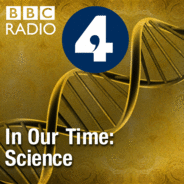Melvyn Bragg and guests discuss one of our ancestors, Homo erectus, who thrived on Earth for around two million years whereas we, Homo sapiens, emerged only in the last three hundred thousand years. Homo erectus, or Upright Man, spread from Africa to Asia and it was on the Island of Java that fossilised remains were found in 1891 in an expedition led by Dutch scientist Eugène Dubois. Homo erectus people adapted to different habitats, ate varied food, lived in groups, had stamina to outrun their prey; and discoveries have prompted many theories on the relationship between their diet and the size of their brains, on their ability as seafarers, on their creativity and on their ability to speak and otherwise communicate.The image above is from a diorama at the Moesgaard Museum in Denmark, depicting the Turkana Boy referred to in the programme. With Peter Kjærgaard
Director of the Natural History Museum of Denmark and Professor of Evolutionary History at the University of CopenhagenJosé Joordens
Senior Researcher in Human Evolution at Naturalis Biodiversity Centre and Professor of Human Evolution at Maastricht UniversityAndMark Maslin
Professor of Earth System Science at University College LondonProducer: Simon Tillotson

Wissenschaft & Technik
In Our Time: Science Folgen
Scientific principles, theory, and the role of key figures in the advancement of science.
Folgen von In Our Time: Science
292 Folgen
-
Folge vom 12.05.2022Homo erectus
-
Folge vom 07.04.2022SeismologyMelvyn Bragg and guests discuss the study of earthquakes. A massive earthquake in 1755 devastated Lisbon, and this disaster helped inspire a new science of seismology which intensified after San Francisco in 1906 and advanced even further with the need to monitor nuclear tests around the world from 1945 onwards. While we now know so much more about what lies beneath the surface of the Earth, and how rocks move and crack, it remains impossible to predict when earthquakes will happen. Thanks to seismology, though, we have a clearer idea of where earthquakes will happen and how to make some of them less hazardous to lives and homes.WithRebecca Bell Senior lecturer in Geology and Geophysics at Imperial College LondonZoe Mildon Lecturer in Earth Sciences and Future Leaders Fellow at the University of PlymouthAnd James Hammond Reader in Geophysics at Birkbeck, University of LondonProducer: Simon Tillotson
-
Folge vom 11.11.2021William and Caroline HerschelMelvyn Bragg and guests discuss William Herschel (1738 – 1822) and his sister Caroline Herschel (1750 – 1848) who were born in Hanover and made their reputation in Britain. William was one of the most eminent astronomers in British history. Although he started life as a musician, as a young man he became interested in studying the night sky. With an extraordinary talent, he constructed telescopes that were able to see further and more clearly than any others at the time. He is most celebrated today for discovering the planet Uranus and detecting what came to be known as infrared radiation. Caroline also became a distinguished astronomer, discovering several comets and collaborating with her brother.WithMonica Grady Professor of Planetary and Space Sciences at the Open UniversityCarolin Crawford Institute of Astronomy, Cambridge and an Emeritus Fellow of Emmanuel College, University of CambridgeAndJim Bennett Keeper Emeritus at the Science Museum in London.Studio producer: John Goudie
-
Folge vom 28.10.2021CoralsMelvyn Bragg and guests discuss the simple animals which informed Charles Darwin's first book, The Structure and Distribution of Coral Reefs, published in 1842. From corals, Darwin concluded that the Earth changed very slowly and was not fashioned by God. Now coral reefs, which some liken to undersea rainforests, are threatened by human activity, including fishing, pollution and climate change. WithSteve Jones Senior Research Fellow in Genetics at University College LondonNicola Foster Lecturer in Marine Biology at the University of Plymouth AndGareth Williams Associate Professor in Marine Biology at Bangor University School of Ocean SciencesProducer Simon Tilllotson.
